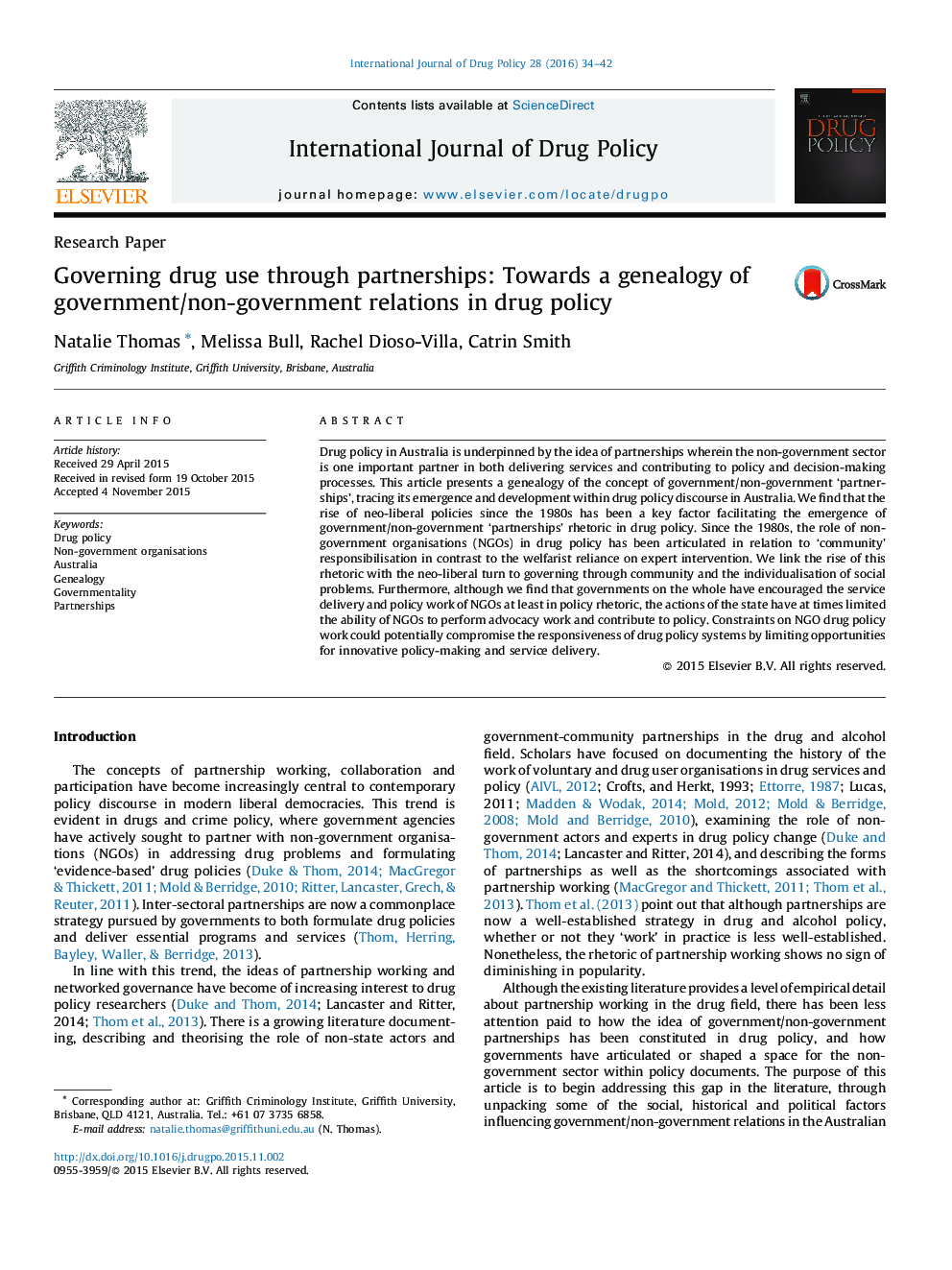| کد مقاله | کد نشریه | سال انتشار | مقاله انگلیسی | نسخه تمام متن |
|---|---|---|---|---|
| 1074989 | 1486277 | 2016 | 9 صفحه PDF | دانلود رایگان |
• We present a genealogy of government/non-government ‘partnership’ rhetoric in Australian drug policy.
• Drug policy rhetoric since the 1980s has emphasised NGOs role in terms of ‘community’ responsibilisation.
• Although policy rhetoric encourages service delivery and policy work of NGOs, practical actions of governments have sometimes limited the ability of NGOs to perform policy work.
• Constraints on NGO policy work can compromise balanced and innovative drug policy responses.
Drug policy in Australia is underpinned by the idea of partnerships wherein the non-government sector is one important partner in both delivering services and contributing to policy and decision-making processes. This article presents a genealogy of the concept of government/non-government ‘partnerships’, tracing its emergence and development within drug policy discourse in Australia. We find that the rise of neo-liberal policies since the 1980s has been a key factor facilitating the emergence of government/non-government ‘partnerships’ rhetoric in drug policy. Since the 1980s, the role of non-government organisations (NGOs) in drug policy has been articulated in relation to ‘community’ responsibilisation in contrast to the welfarist reliance on expert intervention. We link the rise of this rhetoric with the neo-liberal turn to governing through community and the individualisation of social problems. Furthermore, although we find that governments on the whole have encouraged the service delivery and policy work of NGOs at least in policy rhetoric, the actions of the state have at times limited the ability of NGOs to perform advocacy work and contribute to policy. Constraints on NGO drug policy work could potentially compromise the responsiveness of drug policy systems by limiting opportunities for innovative policy-making and service delivery.
Journal: International Journal of Drug Policy - Volume 28, February 2016, Pages 34–42
